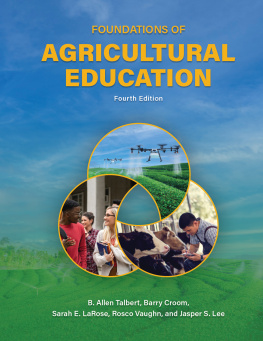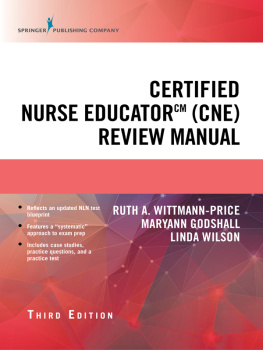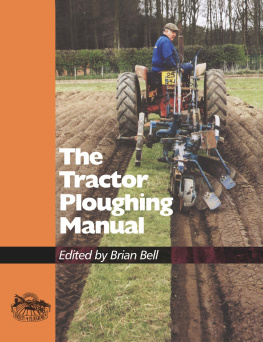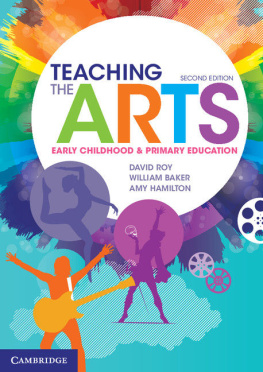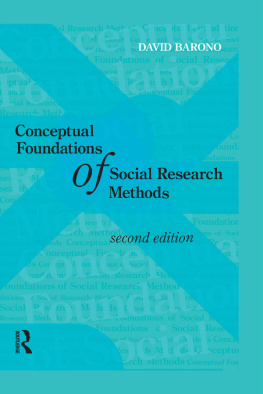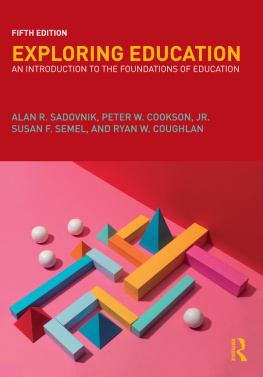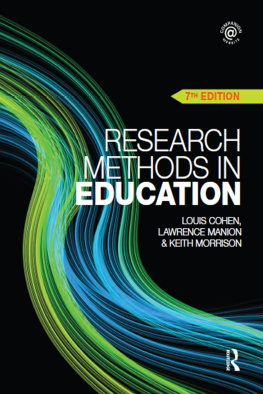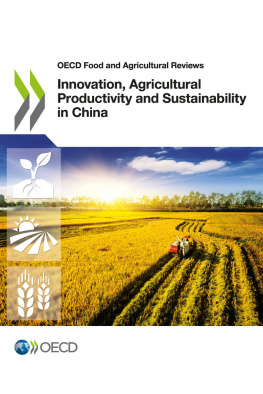Contents
Page List
Guide

FOUNDATIONS OF AGRICULTURAL EDUCATION
FOUNDATIONS OF AGRICULTURAL EDUCATION
Fourth Edition
B. Allen Talbert, Barry Croom, Sarah E. LaRose, Rosco Vaughn, and Jasper S. Lee
Purdue University Press West Lafayette, Indiana
Copyright 2022 by Purdue University. All rights reserved.
Printed in the United States of America.
Cataloging-in-Publication Data is on file with the Library of Congress.
978-1-61249-752-5 (print)
978-1-61249-753-2 (epub)
978-1-61249-754-9 (epdf)
Cover credit: Image 898449496 by Kinwun/iStock/Getty Images Plus via Getty Images; Image 931566626 by torwai/iStock/Getty Images Plus via Getty Images; Image 1201407573 by Ridofranz/iStock/Getty Images Plus via Getty Images
About the Authors
Dr. B. Allen Talbert is a professor of agricultural education at Purdue University. He currently teaches courses in school-based agricultural education program planning, SAE/ FFA, and student teaching. His research focuses on recruitment and retention of students from underrepresented minority groups. His engagement work is focused on professional development of agriculture teachers and service to FFA on all levels.
Dr. Barry Croom is a professor at the University of Georgia and professor emeritus at North Carolina State University. He has more than thirty-five years of experience in agricultural education. Croom began his professional career as a high school agricultural education teacher. While a high school teacher, he was selected by the National FFA Organization to develop and present in-service workshops to teachers across the United States. Croom maintains a research program that focuses on effective teaching, career and technical education policy, and diversity in agricultural and extension education.
Dr. Sarah E. LaRose is an assistant professor of agricultural education at Purdue University. She began her career in agricultural education as a high school teacher and FFA advisor in Woodbury, Connecticut, where she developed curriculum on local food production and extensively used agricultural teaching laboratory spaces to deliver instruction. Her research seeks to cultivate the development of agricultural educators who actively create student-centered, inclusive programs so that all students can experience the transformative benefits of agricultural education.
Dr. Rosco Vaughn is a professor and agricultural teacher educator at California State University, Fresno. He was a coauthor of previous editions of this title.
Dr. Jasper S. Lee is a retired agricultural educator. He served as a faculty member at Virginia Tech and Mississippi State University, after which he worked full-time as an author and publisher. He was a coauthor of previous editions of this title.
Preface
Foundations of Agricultural Education was previously published by Pearson Education and Professional Educators Publications. This edition with Purdue University Press continues to expand on the major goal of the book: to introduce future agricultural educators to their profession and support professional development of those now in the profession.
The second edition updated and expanded on the content of the first edition. The third edition enhanced the useful features of the first two editions. Now, this fourth edition updates each chapter using current literature, legislation, and initiatives. In recent years, digital learning, lifework balance, and DEI (diversity, equity, and inclusion) discussions have been prominent in school-based agricultural education. Therefore, this edition adds a new chapter on digital learning, includes a new chapter with a lifework balance focus, and highlights DEI efforts throughout the textbook. The authors were determined to prepare a relevant book for the agricultural education profession and are pleased to be able to bring this book to you.
The audience for this book includes college students in agricultural teacher education programs, agriculture teachers, state supervisors, teacher educators, and others interested in agricultural education. The overall purpose is to provide a foundational resource, one that broadly covers each element necessary to be a teacher of agricultural education. The book is appropriate for introductory as well as advanced classes in agricultural teacher education. Incumbent teachers will also find information useful to them as they go about their roles as professionals in agricultural education.
Agriculture and education are both fast paced and ever changing. Agricultural education is a blend of each of these. This book focuses on current content, terminology, practices, and theory while giving historical and philosophical foundations to agricultural education. Opening scenarios, examples, and terms have been used that will help to keep the book current.
We strongly feel the secondary agricultural education model of classroom/laboratory instruction, supervised agricultural experience, and FFA has withstood the test of time. This model, when properly followed, will result in enhanced student learning, a better prepared agricultural workforce, more competent community leaders, and an agriculturally literate society.
Delve into Foundations of Agricultural Education. Review the contents and thumb through the chapters. You will note a user-friendly organization, images that reflect successful local program practices, and a unified professional approach. You will also note wide regional representation across the United States. This reflects the backgrounds of the authors as well as nationwide practices. Your review of this book should pique your interest and promote your professional enthusiasm for greater study. And do the authors a favor: commit to an energetic and productive career as a teacher of agricultural education.
Acknowledgments
We acknowledge the important roles of our families in this work. The extra time and effort required often took us away from family duties. We appreciate their understanding and hope they view this product as worthy.
We are grateful to many individuals who have directly or indirectly contributed to the production of this book. Some were high school teachers, and others were teacher educators who guided us in our own professional development. Others who should be acknowledged are our current professional associates, who daily enhance our knowledge and help mold our professional practice.
We appreciate the universities where we are teacher educators for allowing and supporting the development of this book. Purdue University; California State University, Fresno; and University of Georgia are acknowledged in this regard. We are also grateful to other universities where we have studied or had close personal contact. These include Virginia Tech, Mississippi State University, New Mexico State University, University of Illinois, University of Connecticut, University of Florida, The Ohio State University, Texas Tech University, Clemson University, The Pennsylvania State University, Texas A&M University, Oregon State University, Cornell University, North Carolina State University, and University of Minnesota.
We wish to acknowledge the organizations affiliated with agricultural education, including the National Association of Agricultural Educators, the American Association for Agricultural Education, and the National Association of Supervisors of Agricultural Education. The staff of the National FFA Organization is also acknowledged for direct and indirect support of the authors.

